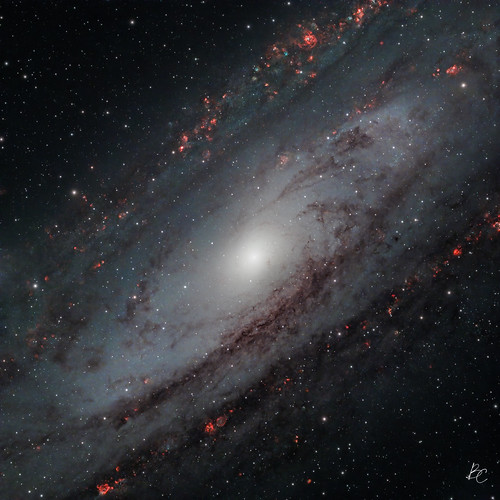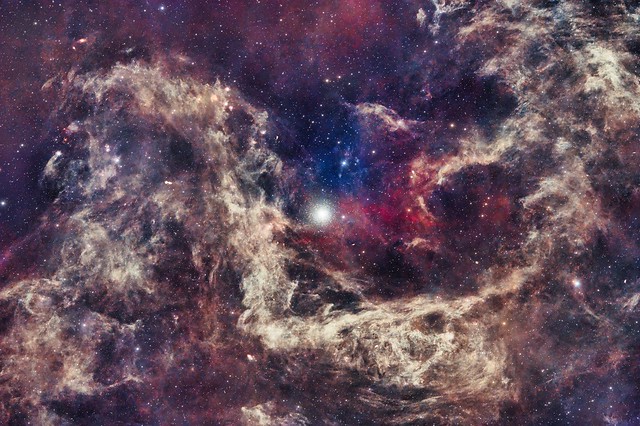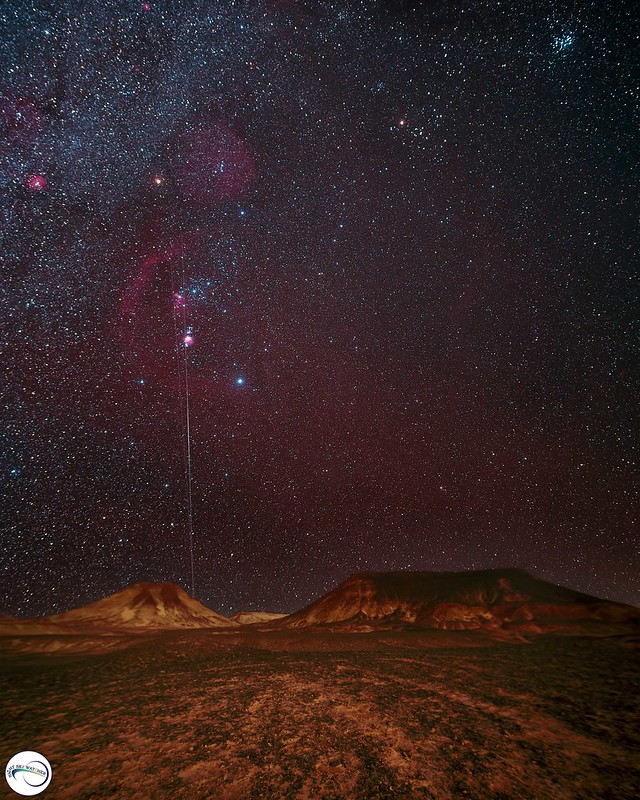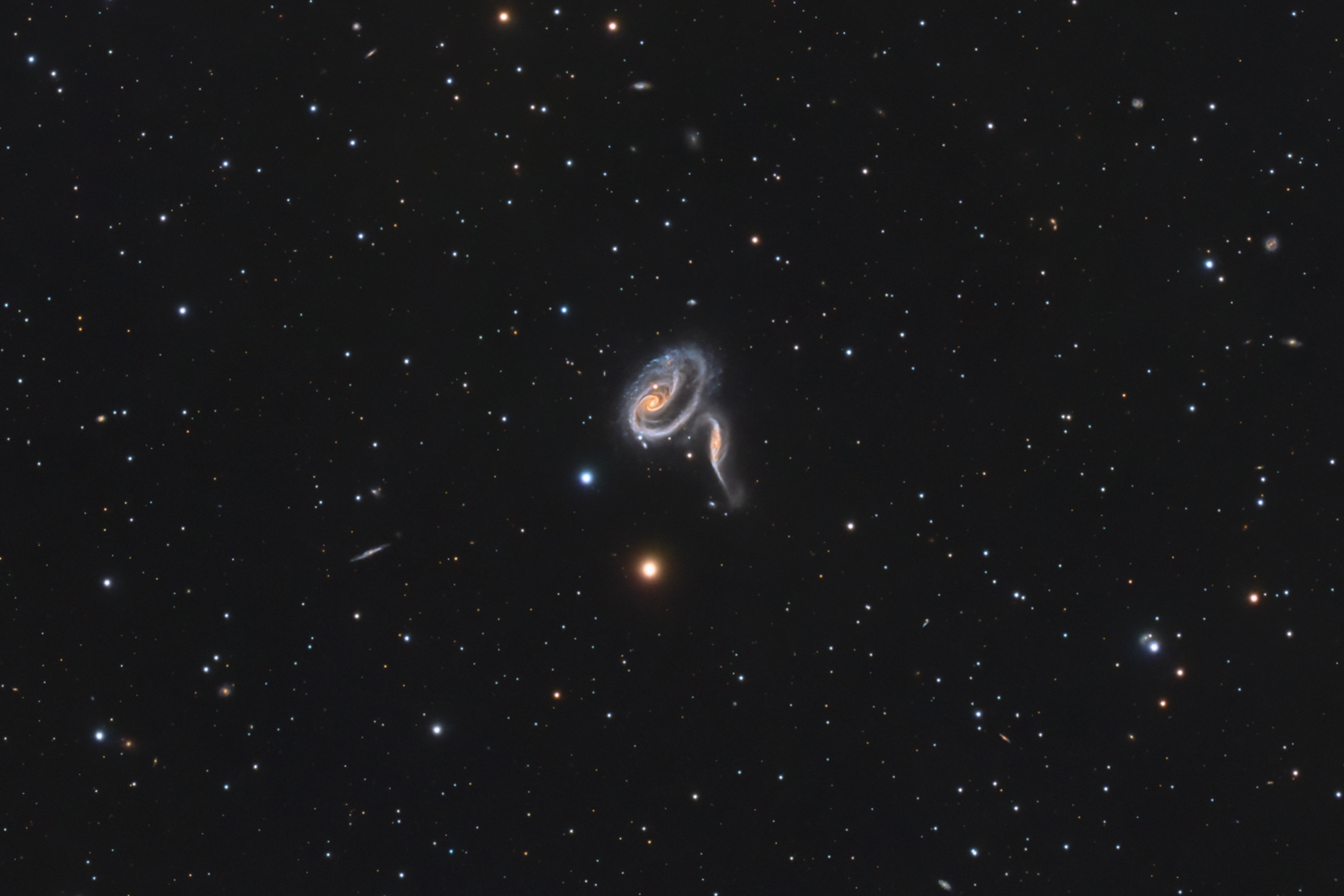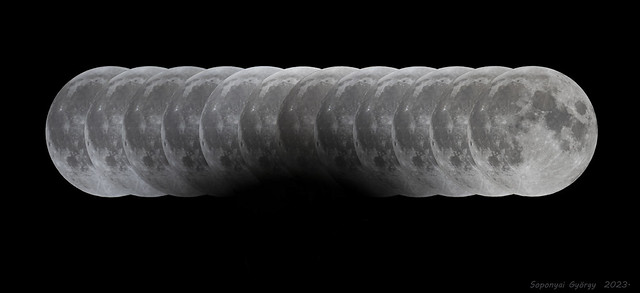NGC 7635 and its companions
Dive into the heart of the Milky Way, halfway between Cassiopeia and Cepheus. Here, you'll find a multitude of celestial objects, such as the Bubble Nebula (NGC 7635) and the Lobster Claw Nebula (SH2-157), but there are other emission nebulae as well. In the center at the bottom, you can observe NGC 7538, SH2-159 in the middle, and one as large as the claw, SH2-161, to the right of the image. That's a total of five emission nebulae, not to mention a large number of both bright and dark nebulae. Additionally, there are two open clusters, one of which is part of the Messier catalog: M52, in the upper right. The other, more modest one, NGC 7510, can be found in the lower left. Unlike the other objects mentioned in the Cassiopeia constellation, this little one belongs to Cepheus.
This image was created over five nights, from October 7th to 11th, 2023, accumulating a total of 45 hours of exposure time. The equipment used includes an ASI 1600mm Pro camera coupled with an Askar 400 telescope and its x0.7 reducer, which shortens the focal length to 280mm with an aperture of F/3.9. These five nights were spent in my garden in Le Cannet-des-Maures, southeastern France, under a Bortle 5 sky.
I chose the SHO palette to highlight the different layers of hydrogen, sulfur, and oxygen present in this part of the sky. It's a palette that I particularly appreciate because it blends colors ranging from brick red to blue, with hints of yellow and green.
I hope you enjoy it, and clear skies!
full on my astrobin :
https://www.astrobin.com/xkdxqs/



